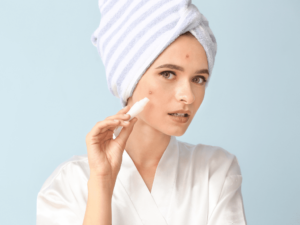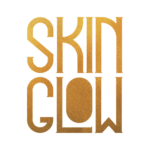Niacinamide is a form of vitamin B3 and a compound that you should definitely add to your daily skincare routine. Niacinamide can be found in creams and serums, or you can buy a supplement that contains this amazing molecule.
It has great benefits for the skin, and it is recommended by dermatologists or skin care specialists worldwide. Find out more about vitamin B3, when to apply it and learn how to use it to your advantage. You will see great results on the overall aspect of your face.
What does niacinamide do?
If you are wondering how niacinamide works on skin, you must know that it has fabulous anti-inflammatory and anti-redness properties. Vitamin B3 has the role of increasing lipids and proteins that you regularly find in your skin. It also keeps your face hydrated all the time, maintaining a fresh look and preventing that drying skin aspect. Overall, vitamin B3 creates a great barrier for your skin, protecting it from external factors like bacteria, pollution or other compounds in the air that can irritate your skin.
Another remarkable effect that this smart molecule has is its capacity to balance sebum production. If you are struggling with acne, you should definitely add a cream or serum with this compound to your daily skincare routine. By using products with this molecule, you will have improved skin. And all thanks to its capacity to dramatically reduce breakouts caused by acne.
Moreover, when the sebum production is lowered, you will also improve your pore aspect, and they will not look as enlarged.
Besides being a fabulous treatment for acne, vitamin B3 is ideal for those who struggle with pigmentation and even scars left by acne.
Who discovered niacinamide?
In 1915 Joseph Goldberger started studying pellagra, a disease that killed thousands in America and Europe. After years of research, the biochemist found out that there is a link between people’s diet and the appearance of this affection. Casimir Funk, another scientist, continued the study and found out that there is an essential ingredient that people don’t receive when preparing rice. He isolated this ingredient and called it vitamin. In 1912 he published a book where he explained that the lack of vitamins in the human body causes numerous diseases. The compound extracted from the rice was vitamin B, and he later discovered there were, in fact, four different molecules. One of them was the vitamin B3, used for preventing pellagra. It is an FDA-approved treatment for this disease.
Niacinamide: Where does it come from?
Vitamin B3, also called vitamin PP is a well-known compound in many beauty products. As history shows, it is a natural ingredient that you can find in many kinds of cereals, including rice. This molecule is derived from nicotinic acid and was also discovered in brewer’s yeast.
Its amazing properties not only prevent skin diseases but also help people keep beautiful, fresh-looking skin.

Is vitamin B3 good for acne?
Products containing this compound are recommended for people with acne. Creams that contain this ingredient will reduce inflammation and redness. They will also kill bacteria, that is is one of the main reasons for acne breakouts. Because it reduces sebum production, your pores will not get clogged like they used to. However, products that contain this molecule proved to be effective only for mild acne. So if you are struggling with a severe form, you must see a skin care specialist or a dermatologist that will help you get proper treatment.
When to use niacinamide?
You can use vitamin B3 serums, creams and lotions in the morning before starting your day or right before going to sleep.
Also, niacinamide works very well with Vitamin C serums, creams based on hyaluronic acids or retinol.
Will niacinamide cause acne?
Many people ask themselves, “Will niacinamide cause breakouts?”. The answer is no, but there were rare cases when breakout started because of vitamin B3. Most of the time, purging appears because of the products you use. It happens because your body is trying to adjust to the new skincare routine.
If you have oily skin, there is a possibility for it to break and look oilier than before. That happens because the products containing vitamin B3 are non-comedogenic. It means that the molecule will not allow your pores to clog.
It would be best if you kept in mind that there are cases when your skin will produce more oil, especially when you’re using vitamin B3 to treat your acne. However, this side effect will last about a month, and your skin will start looking so much better.
Irritation and breakouts may also appear if you are allergic to niacinamide. In this case, we recommend you change your skincare and not use products that contain this type of vitamin B3.
Which Vitamin B3 cream to use?
Skinglow clinic experts recommend you use this Metacell Renewal B3 face cream. It is a water-based emulsion with a high concentration of 5% niacinamide for people to improve the signs of photoaging, and it creates a barrier against nocive sun rays. The cream also evens skin tone, helps you regain skin elasticity and improves wrinkles and fine lines. This SkinCeuticals face cream is your perfect ally if you are struggling with discolouration. Use the product twice a day, in the morning and before going to sleep. Use two pumps of product and massage your face, neck, and chest to obtain the best results. Your skin will look firmer, younger and healthier.

Benefits of using vitamin B3 products
This natural ingredient is highly beneficial when added to your daily skincare routine. This compound will help your skin better retain water and get rid of that dry appearance of your face. This happens mostly because your skin does not effectively lock moisture. Vitamin B3 will balance your natural oil production if you have oily skin.
Artificial fragrances, bowling chemicals, or pollution make damage your skin barrier. Vitamin B3 will reinforce your skin barrier and offer a great defensive shield.
Niacinamide can also boost your collagen production. This way, your wrinkles and fine lines will look less prominent.
If you’re struggling with dark spots or hyperpigmentation, creams and serums that contain this ingredient will break down excess melanin, making it look blurry.
Vitamin D3 will also be recommended when you’re struggling with acne and need topical retinoids. It will calm down the irritation and redness, and your face will not become drier.
Where to cure acne and improve fine lines?
Skinglow Clinic is one of the best places where you can treat acne and get rid of unwanted scars. We offer you a personalised treatment that will help you reduce blemishes and improve the aspect of your skin. Moreover, we also provide treatments that help you prevent ageing signs and improve wrinkles and fine lines.
We have a team of experts with more than 20 years of experience that will adapt the treatment according to your needs. You can contact us if you want to make an appointment or find out more about our facial therapies. Also, you can pay us a visit in London, 216 Kensington Park Rd, Notting Hill.





